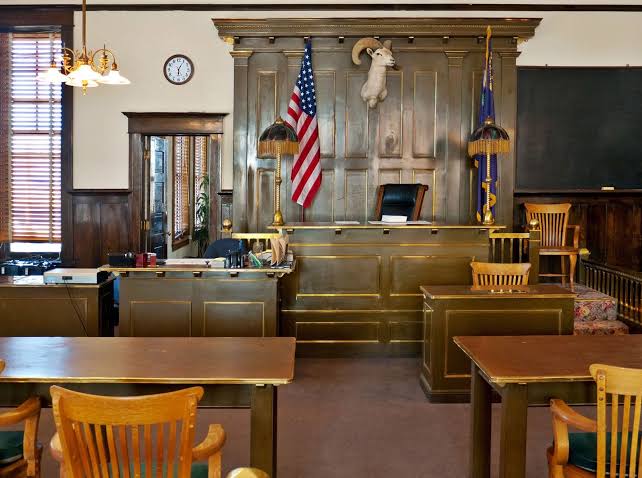
Shane Green was just a cleaner at a Queensland primary school. He showed up early, kept the floors spotless, and went home. But one morning in September 2014, he unlocked the staff room and stepped into what looked like the aftermath of a drunken orgy. There were condoms filled with white cream, empty bottles of beer and wine, underwear draped over chairs, and a mattress dragged onto the floor.
It was a prank. But Green didn’t know that.
Who Set the Scene
Norman Brooker, the school groundsman, planned the whole thing. He was annoyed at Green over an earlier prank and wanted to get even. Vicki Keating, another cleaner, helped him. She brought the underwear and some bottles. Brooker set up the room the night before with props from the sick bay and condoms filled with shaving cream. He made it look like two staff members—rumored to be having an affair—had used the school for a hook-up.
Green walked in, saw the mess, and believed it. Keating, who was part of the joke, took pictures and pretended to be just as shocked. According to tribunal records, she said something like, “Look what’s over there,” knowing full well it had been staged.
Green cleaned it all. He believed he was wiping up someone else’s bodily fluids. There were no warnings, no clues, no hints that it wasn’t real. He was the only one not laughing.
The Final Touch: Sniff This
Later that day, Brooker found Green and kept the story going. He told Green that yes, the two staffers had been there. He even said he saw one arrive with booze and the other already inside. Then, Brooker pointed to the discarded underwear—and invited Green to sniff it.
Green refused. He kept the underwear, saying it was “evidence.”
He started feeling something was off, but the damage was already done. He’d processed the scene as real. He’d scrubbed the floor and the mattress as if cleaning up after a live, unsanctioned sex act inside a school.

Psychological Fallout
At first, Green laughed it off. He played along, outwardly. But at home, he told his wife he couldn’t sleep. He was agitated, disturbed by what he thought he’d seen, and angry at the idea that his workplace had been used for something so inappropriate.
Two days later, Brooker told him it was a prank.
That broke him.
According to the tribunal’s findings, Green dropped to his knees in shock. He wasn’t laughing. He was humiliated. The very people he worked beside had made him the punchline of an elaborate, sexually explicit hoax.
He said he felt mocked, exposed, and mentally violated. It wasn’t just a prank to him. It was a setup that targeted his decency, his sense of professionalism, and his emotional boundaries.
He stopped eating regularly. He lost weight. He found it hard to look people in the eye. He started isolating himself. He had nightmares. Every time he remembered the prank, he said it played in his head like a video on loop.
Retaliation Begins
Green filed a complaint with the Anti-Discrimination Commission of Queensland in November 2014. That’s when things got worse.
In March 2015, Green came near the school to pick up his kids. Brooker raised his phone and pointed it at Green from 150 meters away, pretending to take a photo or record video. It happened again two weeks later.
Then came June. Brooker allegedly gave Green’s children the middle finger, laughed at them, and drove by them closely on school grounds. Green’s wife said she saw Brooker flipping her off in the rearview mirror as she drove their kids to another entrance.
It was psychological warfare. Subtle, unrecorded, but deeply unsettling.
Green and his wife eventually changed their route to avoid Brooker. They tried dropping their kids at different times. But even when Green stayed away, Brooker kept finding ways to make his presence felt.
Behind Closed Doors
Keating told the tribunal she was just playing along. That it was a harmless gag. She said the prank wasn’t sexual. It was just a joke gone wrong. She denied knowing the scene would affect Green the way it did.
But the tribunal didn’t believe her. They pointed out that she not only helped set it up, she also acted shocked in front of Green and then joked about it later with Brooker. She was in on it from the beginning.
Brooker admitted it was a prank. He said he was annoyed with Green and wanted to get back at him. But he never expected Green to take it so seriously. He didn’t think it would go this far.
Green never returned to work at the school.
Was It All an Act?
The State of Queensland fought the case. Their lawyers said Green was exaggerating. That he faked being hurt to get compensation. That he had a flair for drama. After all, he’d once said he wanted to renew his wedding vows by landing a helicopter on the school oval.
They brought in a psychiatrist who claimed Green was malingering—faking symptoms for money.
But Green had seen his own psychiatrist and psychologist almost 100 times over two years. Both said he showed consistent signs of psychological distress. He became agitated when talking about the prank. He avoided the school. He had PTSD symptoms that couldn’t be easily faked. According to one doctor, he would sometimes jump up in mid-session, adopting a boxing stance as if defending himself.
That isn’t easy to perform 100 times.
He also had no history of psychiatric illness before this. No documented exaggeration, no legal claims. The doctors testified that he genuinely believed the scene he walked into was real. His emotional response, they said, was proportionate to that belief.
The tribunal found his symptoms consistent, his behavior credible, and his reactions genuine. They said it would be extraordinary for someone to maintain that level of emotional response if they were faking.
The Legal Ruling
In 2017, the Queensland Civil and Administrative Tribunal handed down its decision: Green had been sexually harassed.
Brooker and Keating created a scene that was sexual in nature. It was intended to humiliate Green. It had a lasting psychological effect. Brooker continued to harass Green and his family after the complaint was filed.
The tribunal didn’t buy the argument that it was all harmless fun. Or that Green made it up. They said the prank went too far. It wasn’t just a joke. It became sexual harassment the moment it was aimed at Green and affected his well-being.
Brooker and the State of Queensland were ordered to pay Green $156,051. Keating and the State were also held liable for part of the amount. But Green wouldn’t double-dip. He was entitled to that total sum in full.
Green said he would have preferred to keep his job. He liked working at the school. But he could never go back after what happened.

The Human Cost
He said he lost more than a job. He lost trust in people. He lost confidence in his instincts. His kids were dragged into something they didn’t understand. His wife had to become his emotional buffer.
One of the tribunal’s final remarks was that the prank was “deeply inappropriate.” That what seemed like a joke had long-term consequences. It altered the course of Green’s life.
And the people who caused it? Still walked free.
A Quiet Payout
The decision confirmed the prank, the retaliation, and the psychological toll. But it didn’t go viral. There were no national headlines. No social outrage. No policy changes.
Green got a payout. Brooker and Keating faced no criminal charges. The school went on like nothing happened.
But the story lives in tribunal records. A man who cleaned up a fake sex scene set up by his coworkers, who thought it was real, who was humiliated and taunted for speaking up—was finally believed.
And for once, that was enough to make it count.





